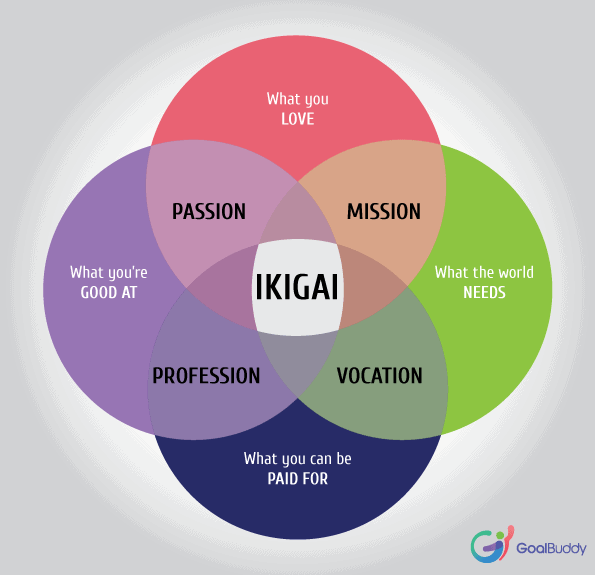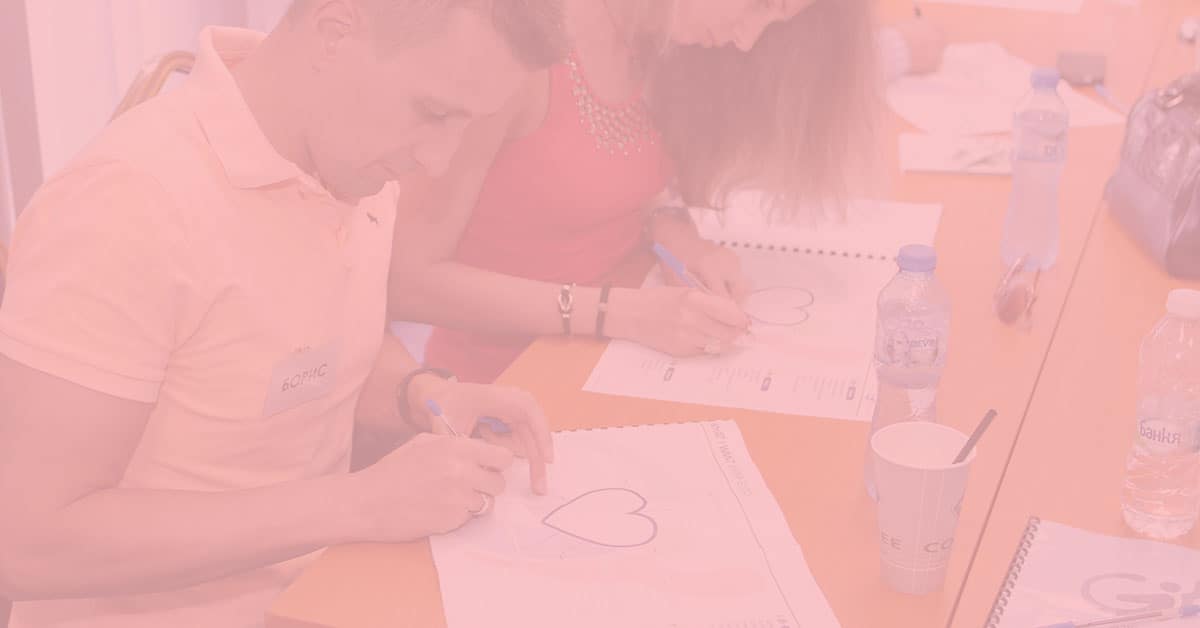An old notion how to understand what you are about
There is a Japanese story of a young woman from a small town on the island of Okinawa. She was ill and unable to get out of bed but nobody could figure out what exactly was wrong with her. Life was leaving her and she was slipping in and out of coma when one day she heard a heavenly Voice posing the question “Who are you?”
“I’m Megumi, the mayor’s wife”, she replied.
“I am not asking for your name or husband, but who you are,” insisted the Voice.
“Well, I am a mother of three”, she tried again.
“I am not asking if you have any children, but who you are.”
“I’m a teacher at the school.”
“I am not asking what your job is, but who you are.”
This exchange went on for a while. The poor, sick woman was at a total loss but then she finally said, “I am the one who wakes up every day to love her husband, to raise her kids and to teach at the school.”
At that very moment, a sudden burst of energy filled her body with strength. She jumped out of bed ready to start her day. What happened was that she got back her desire to live.
All three of her responsibilities, the wife, the mother, and the teacher, came back together to rebuild her lost ikigai – the “thing” that is worth living for, or the reason to get up in the morning. This might be an old story but it can teach us a lot even today, and especially in our modern fast-changing world. You will see in today’s article for yourself how the moral here gets integrated into “GoalBuddy”.
In translation
The word consists of two parts – life and meaning. And while there could be other interpretations, it is used, more or less, to express a state of yours when you are aware of what is of value to you and what drives you to live.
In the Japanese tradition, realizing it makes you healthier and happier. Here we have a simple exercise on how to recognize your own one.
The four questions
Take a piece of paper and write down the answers to the following:
#1 What do I love?
#2 What am I good at?
#3 What kind of work I can do (now or in the future) so that I earn enough?
#4 What does the world need that I can offer to it?
Try to be as fully and as detailed as possible. Next comes the hard part.
“The truth is somewhere in the middle”
What you have to do now is to try to pinpoint the common denominator even if it is expressed differently for each of the four questions. Or what would be the one thing that’s in there regardless of your choice of words.
Is there anything that you love to do and at the same time you are good at but also brings value to those around you? Can you also make a living out of it? That would be it, i.e. the work that fulfills you with a purpose in life and worthy meaning at its core.
Here is an illustration in the form of a Wen diagram.

You must be wondering how this relates to “GoalBuddy”.
A clear vision for a mission
In order to utilize our system to its fullest, you have to know what your true dreams are. Then you define what your objectives in the long run are and, most importantly, the “why” question must have a straightforward and unambiguous answer. You do that by building a vision for things such as family, career, finances, etc. Having done that your next step is to set specific targets and develop strategies for them.
Health and finances are pretty self-evident (everyone instinctively knows that it’s better to be healthy and rich than poor and sick). Others can become the source for internal conflict and start pulling you in opposite directions. This is often the case when you decide on a career.
The exercise for finding your ikigai is irreplaceable in revealing to you this thing, which we call “mission”, must be like.
At a crossroad
Have you ever asked yourself, “Is my work really my ‘thing’? Do I want to keep doing this for the rest of my life?”
It is extremely difficult and even close to impossible to get the answer right when uncertainty and lack of confidence are prevailing.
So, make the effort and get the exercise done. It will help you lift up the curtain in front of the big picture. Once you are able to see it setting your goals becomes a cake walk.
Let’s first show you how to find the overlapping area between all areas by simplifying it a little bit and dealing with only two or three of them at the same time.
When there is no overlap with money
Imagine that you already have this one thing which you love doing and, on top of that, you are close to perfection at it. Yet, it doesn’t intersect with “What you can get paid for” because it doesn’t interest people to the degree that they are willing to pay for it.
Unless you are Steve Jobs, of course, don’t expect to be able to convince the world that it needs exactly what you have to offer.
No expertise…
Another possibility is that you love something that is certainly useful and can potentially make you rich, but you are just not that good at it. For example, if you are dying to work on sports cars but you have no talent for it whatsoever then you would make a terrible Formula 1 mechanic. Then obviously it isn’t for you, or at least not until you acquire the necessary amount of knowledge and skills.
There won’t be any ikigai, but this awareness may open the door for improvements such as getting the necessary education and professional qualifications.
No love whatsoever…
Maybe the worst scenario is when you are good at something that pays bills but that’s all. There is nothing beyond the material. Even if you are fooling yourself that there is then you are doing nothing more than rationalizing.
When you are not invested with all your heart in a vocation then sooner or later you will be afflicted with feelings of self-resentment and restlessness. You will end up with a diminished drive to achieve and you might stagnate professionally.
This problem is not limited to individual people. Large organizations, a team or even a couple, Goal Buddies not excluded, can to fall in the same trap too.
A business also needs its perfect environment
In the book “Good to Great,” Jim Collins makes an in-depth analysis of what makes a company “great” – one that managed to stay on top for a long time or made the transition from mediocrity to excellence.
It turns out that the same principles, based on this Eastern philosophy, apply.
In short, the great companies have a crystal clear answer to the following points:
1) What they can be the best in the world at;
2) What are they deeply passionate about;
3) What drives their economic engine.
The author estimates that the chance for failure is quite high if the business doesn’t position itself in the overlapping area of its mission, the best product quality and the strongest demand of the market.
But let’s go back to how it all works for a single person. Niki did the exercise. Do you care to see how it came out?
A vision for a life mission and some of Niki’s examples
He enjoys many sports but he is a great skier and his windsurfing is remarkable. Obviously, becoming an instructor is an option for him because there is always demand for that.
He also likes socializing, communicating and sharing his experiences. His ability to connect with others and understand them is well above the average and he could be very good at coaching or conducting workshops. More and more people will need help and assistance in achieving their goals.
As you can see there might be more than one ikigai within your reach. It is a matter of how to prioritize and then focus on one thing only aiming at utmost excellence in it. You can see it for yourself that Niki’s social acumen matches perfectly with his vision for a mission – the “GoalBuddy” system itself.
Do it today!
You should make the time to take care of all the questions as well as you can. Then look for the perfect intersection, namely your ikigai.
What we suggest comes quite handy in what to do next.
Put it to the test
Our system provides you with a smoothly working mechanism for the most important, the action itself. Without it, all your plans only stay only on paper and are, in fact, simply wishful thinking.
So many people out there are painfully familiar with the state when there is no doubt in them what they want for the rest of their lives. It often turns out that’s all that’s there – nothing would ever come out of it, they fail to actually start working on materializing their plans.
Ikigai is something like a leverage point. So, it is crucial to test its strength and validity. That’s not hard at all with the help of the 90-day action goals.
90-day experiments
The very first step from the “theoretical” into the realm of practice can shift the paradigm of your life for good.
The 90-day goal will be the perfect way to implement your understanding of what you want. The weekly small but concrete actions are how your ikigai manifests throughout your every day. After three months, make a recap and check if you have performed well towards what you planned. At this point, you will know for sure if your ikigai passed the test of the real world, or you will have to re-define and submit it to another trial.
In any case, working to stay in sync with your ikigai will keep reminding you what you are about. So, don’t leave it for later. Roll up your sleeves right now!
Don’t be surprised, though, if things begin quickly moving in some unexpected directions.
Time passes and everything changes
Even the ikigai is not immune to this.
If you strive for a meaningful existence then don’t fight it.
As we’ve postulated before, no vision is set in stone. Going through life you are evolving non-stop in many ways. Therefore, it is only natural if your attitudes and interests are maturing and taking you on a different path.
It’s good and wise to challenge your choices from time to time by revising your visions and setting new objectives accordingly.
However, don’t get carried away with too much or too soon of a change. Don’t forget that everything should be in good measure.
Finding balance
There is more to living than just going to work. Even if you are immensely gifted and that brings you a great deal of professional and financial success, you should make a priority to balance it with personal growth.
If you are becoming a workaholic who can easily sacrifice your own as well as the wellbeing of those around you then you badly need balance.
Remember that you realize the best version of yourself when you evolve in a sustainable and productive manner that benefits everybody. So, you work on visions of every single area of your life and in the process, you get to strike the golden ratio of you as a human being.
Maybe that’s the real ikigai after all.

